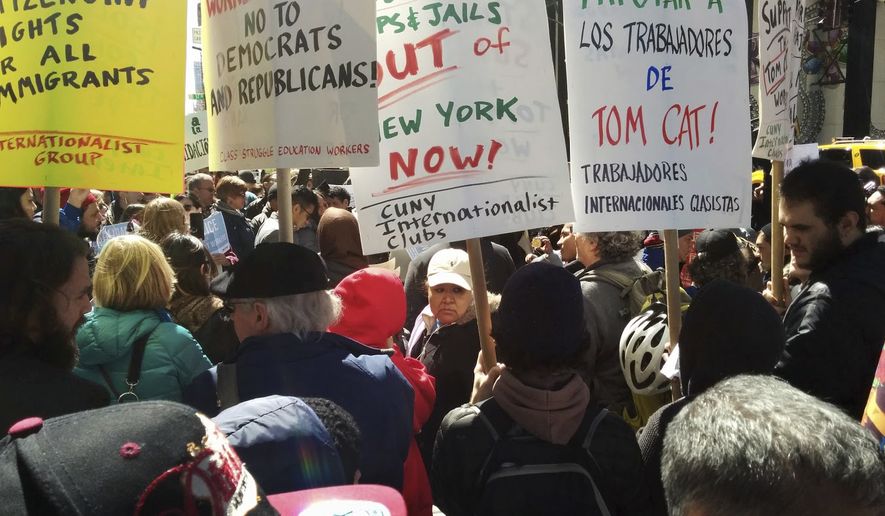
The Trump administration[1] moved Friday to officially revoke an Obama-era program designed to entice foreign entrepreneurs to move to the U.S. to invest their cash in businesses here, saying the previous administration[2] overstepped its powers.
The revocation, if it becomes final, would be yet another blow to President Obama’s attempts to rewrite the immigration system by executive fiat — a policy that also included the DACA deportation amnesty for illegal immigrant “Dreamers,” a broader prohibition on deportations of most illegal immigrants, and new programs to allow more people to enter legally.
The International Entrepreneur program fell into that latter category, with Mr. Obama intending it to be another way for foreign businessmen to skip the usual immigration process and gain a foothold in the U.S.
But Homeland Security now says it no longer believes the program is legal.
“DHS is now proposing to eliminate the IE Final Rule because the department believes that it represents an overly broad interpretation of parole authority, lacks sufficient protections for U.S. workers and investors, and is not the appropriate vehicle for attracting and retaining international entrepreneurs,” the department said in a statement.
Officials said wealthy investors already have other avenues of entering the U.S., such as the EB-5 visa, dubbed the “golden visa” because it lets people willing to invest at least $500,000 get a speedy path to citizenship.
The Obama administration had claimed it was using its “parole” authority to create the program. Under the law, the Homeland Security secretary can parole someone into the U.S., which usually also gives them work authorization, for a specific humanitarian or other important public benefits.
The law doesn’t define public benefit, but the Obama administration said it read it to cover having foreign entrepreneurs gain a foothold in the U.S. The rule required they prove they could attract investment in their businesses.
The level of investment was fairly low — just 10 percent of companies with as little as $250,000 in capital would have been enough to qualify. Startups had to show they created at least five jobs in order for investors to get a renewal of their parole. Those here under the program would not have been allowed to adjust their status to legal permanent residency, officials insisted....
But the Trump administration[3] said it was still a misuse of parole authority, which has generally been seen as a case-by-case decision, not a categorical grant.Homeland Security first moved to delay the program last July, but a federal judge said they cut too many corners. In December he ordered them to get it up and running.The administration complied, even as it worked to rectify the corner-cutting. The government told the court earlier this week that that 13 applications had been received since December. Most have all been “reviewed,” but it doesn’t appear any have been granted.When the Obama administration created the program, it had predicted 3,000 people
